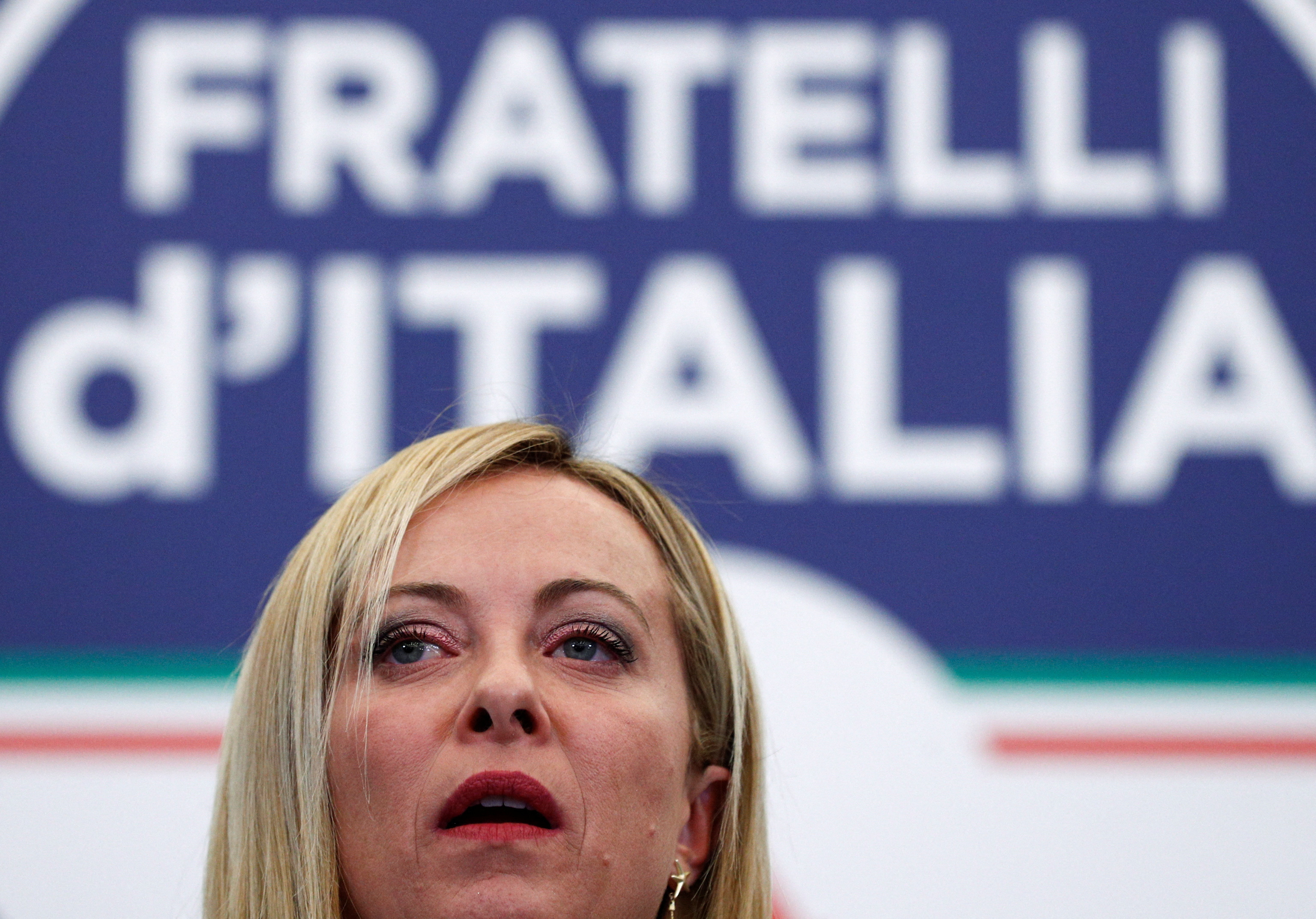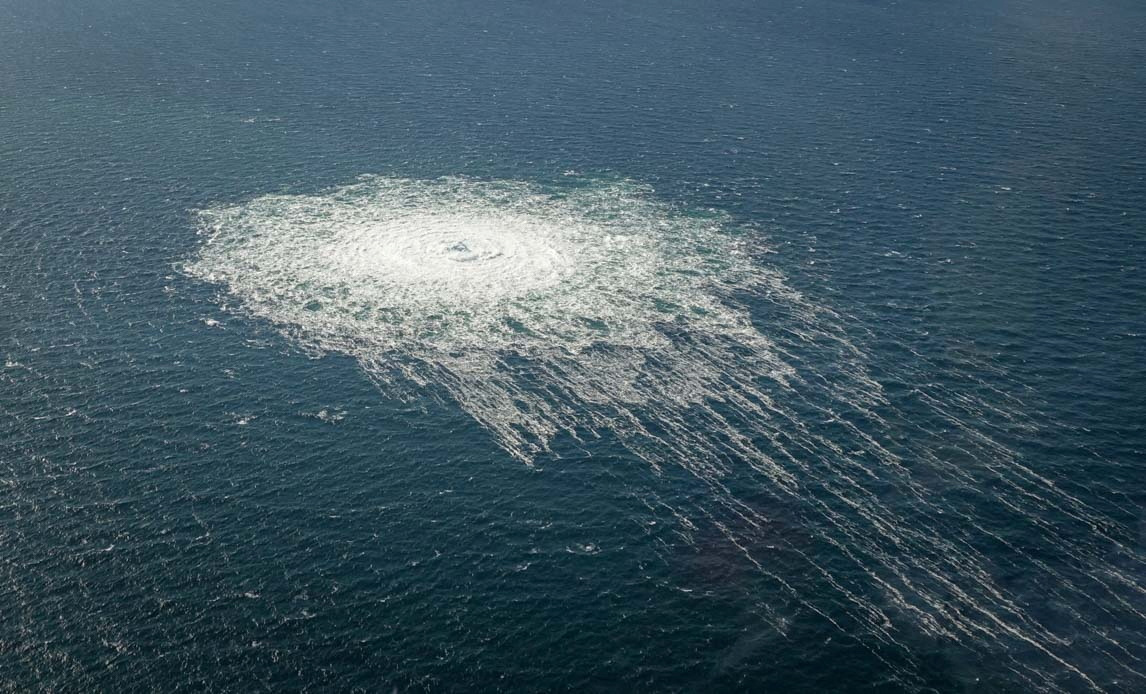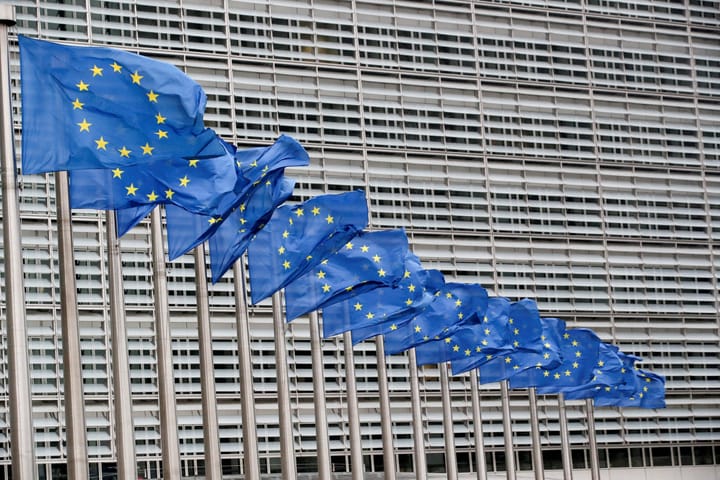From Russia’s cyberattacks on Ukraine to Spain’s nightmare-inducing transit mascot – Here’s your September 28 news briefing

A few minutes every morning is all you need.
Stay up to date on the world's Headlines and Human Stories. It's fun, it's factual, it's fluff-free.
To start off, we’re looking into:
Russia’s cyberattacks on Ukraine
Over the years, Russia hasn’t been a stranger to targeting Ukraine’s digital systems. In 2015 and 2016, it targeted Ukraine’s energy systems after the annexation of Crimea. In 2017, Russia was also responsible for the NotPetya attacks on Ukraine that caused a shutdown of Chernobyl’s radiation monitoring system alongside major banks, airports, railways and other important national IT systems.
Throughout the war, Ukrainian mobile operator Kyivstar, which serves almost 26 million people, has been fighting a flood of Russian cyberattacks as well as dealing with complications caused by the war, like the physical destruction of phone towers and lines. Ukraine’s State Special Communications Service estimates that there have been at least 1,600 major incidents since the beginning of this year.
Ukraine’s Ministry of Defence now expects Russia to target the energy sector again with more cyberattacks. It expects these to include both digital attacks against systems and the destruction of infrastructure.
What does Meloni’s win mean for Italy?

A few days ago, Italy voted in its first female leader, Prime Minister Giorgia Meloni. She’s a member and co-founder of the Brothers of Italy, a party rooted in the post-World War II neo-fascist Italian Social Movement, or MSI. The party’s logo includes a red, white and green flame that is a remnant of the MSI and often associated with fascism, but Meloni denies that the party has fascist ideals.
One of Meloni’s campaign platforms was creating a naval blockade to patrol the Mediterranean and stop “illegal immigrants" from entering Italy. She’s also spoken about removing Italy from participating in the euro and the EU. Her conservative views on “traditional" families, ties to pro-life organizations and stance against the “LGBT lobby" and “gender ideology" have many people worried about her election. However, her supporters see her as a patriotic newcomer who will shake things up, and many compare her popularity in Italy to Trump’s popularity in the US.
The gas leak in Europe

Energy is a hotly contested topic right now (no pun intended). See, Russia is a huge producer of oil and natural gas, and Europe has historically relied on the country to help it through the cold winters. But now that the EU has sanctioned the bejeezus out of Russia, every bit of energy, Russian or otherwise, is being treated carefully for fears of ongoing supply issues throughout the colder months.
That’s why it was so sketchy when Russian gas pipelines under the Baltic Sea sprung leaks earlier this week and started spewing natural gas into the water. Some world leaders say this isn’t a coincidence and it looks like an act of sabotage. Europe is currently investigating the leaks to find out what happened.
To be clear, no one has any solid evidence yet. And even Russia is saying the whole thing looks weird, which could be a face-saving maneuver or a genuine reaction. There are some questions about the effects on local ecosystems, but the bigger question is pretty simple – if it was sabotage, who did it?
To end, we’ll look into:
Just say no to pointless work meetings
It’s pretty much inevitable that if you’ve worked with other people, no matter how closely, you’ve ended up in meetings that either could have been an email or that you didn’t need to be in. These can feel like a waste of time and be demoralizing. And if you’re in a career you aren’t thrilled about to begin with, it can make you want to quit.
A new survey found that, out of 632 workers, employees say they want to skip nearly a third of the meetings they’re invited to, even though they turn down only about 14% of them. And aside from the hit employees can take on morale, meetings can be bad for your health. Several studies have shown that when you sit in a poorly circulated room (say, a conference room) with a bunch of other people, the CO2 levels rise, which brings down high-level thinking and can carry long-term health risks.
But companies wouldn’t require so many meetings if they weren’t necessary, right?
Wrong. Some companies, like the 76 that were part of an experiment run by Vijay Pereira, a management professor at NEOMA Business School in Reims, France, have seen huge benefits from reducing meeting schedules. Across all those companies, the ones that performed the best during the two-year experiment were the ones that had at least two days a week with no meetings.
The theory is that teams get more out of a meeting when they don’t often happen because they’re only meeting each other when they really need it. Those businesses see communication levels rise, engagement among employees improve and productivity grow.
That’s not to mention the US$101 million that Steven Rogelberg, an organizational science, psychology and management professor at the University of North Carolina, calculated that companies with more than 5,000 employees waste every year on unnecessary meetings.
What’s the solution? He says to focus your meetings around questions, not topics. “If you can’t think of any questions, you shouldn’t have had the meeting,” he said.
In other news …
📉Stocks: MSCI’s global gauge of stocks dipped 0.19% to 2,403.88.
📰Some specifics:
- S&P 500 went down 0.21% to 3,647.29.
- Nasdaq Composite bumped up 0.25% to 10,829.50
- Dow Jones dropped 0.43% to 29,134.99.
- Hang Seng Index stayed pretty stable, rising 0.03% to 17,860.31.
🧠Some quick factors to bear in mind:
- Chicago Fed President Charles Evans said that the Fed is headed for a peak in interest rate hikes by March, meaning the US could avoid a recession and look for a downward turn to follow. But, he also said the Fed needs to raise the rate by another percentage point by the end of the year.
- A recent report also shows that new orders for US-manufactured capital goods increased more than expected last month, and a survey showed consumer confidence rising for a second straight month.
- Meanwhile, in the East, China’s central bank introduced US$24.7 billion into the banking sector, raising major financial stocks.
- The Chinese property bubble remains under pressure, with investors looking toward additional government stimulus. But, China’s economic recovery continued with slight upticks in car and home sales, compensating for a weaker global demand and lowered business confidence.
- Asia could see economic disruption as the week continues because of Hurricane Noru.
👄Some comments and chatter:
- “We don’t see a quick retrenchment or a return to 2% inflation, keeping the Fed in hiking mode. This implies more volatility and a need for caution and balance in equity allocations," Tony DeSpirito, BlackRock’s chief investment officer for U.S. Fundamental Equities, wrote in a note released on Tuesday.
- “China’s property downturn has turned into a crisis of confidence that only the government can fix. If falling sales tip more developers into distressed territory, things will get worse. The distressed firms will halt construction on more pre-sold homes, hitting buyers’ confidence further. Our rough estimate is that about 2m unfinished homes presold by Chinese developers are now in limbo. This has shattered confidence in this market,” the rating agency S&P said.
🛢Oil: Oil went up today due to supply curbs in the Gulf of Mexico ahead of Hurricane Ian and a slightly weaker dollar. Brent crude went up 2.6% to US$86.27 a barrel, and US crude ended at US$78.50, up 2%.
👛Bitcoin: At the time of writing, Bitcoin was down 0.9%, settling at US$19,053.40.
📢Protests in Mexico: In several states in Mexico, thousands of people have joined the March for Peace and for the Union, rejecting national militarization and demanding action against crime and more security. Additionally, thousands of Mexicans gathered in the capital in a demonstration on the 8th anniversary of the 2014 Iguala mass kidnapping.
💮Controversial state funeral for Shinzo Abe: Yesterday, Japan held a state funeral for former Prime Minister Shinzo Abe. With his ties to the Unification Church, Abe’s legacy is a little controversial, and there has been public opposition due to the cost of the ceremony.
💸Bad news for the British pound: As markets opened this week, the British pound hit record lows against the US dollar. Traders and investors are reacting to income tax cuts and debt fears. At its lowest this week so far, the pound was trading at just US$1.03.
🚓Interpol is out for Do Kwon: Do Kwon, founder of the cryptocurrency Terra, claims he’s not on the run from South Korean authorities. But, he’s nowhere to be found. Now, Interpol is seeking his arrest, as Do Kwon has been accused of fraud over his company’s US$40 billion collapse.
🟢Is China’s reopening in sight? Major investment banks, including Morgan Stanley, have begun predicting that China will ease COVID restrictions this spring. This development could trigger real recovery for China’s economy.
👠Life in plastic: Aqua’s iconic hit, “Barbie Girl," just turned 25. Unfortunately, the song won’t be featured in Greta Gerwig’s “Barbie" movie coming out next summer.
🤡What in the Killer Klowns is that?: Spanish transit company Sadabell has adopted a new mascot named Bussi that has gone viral on the internet. We would say more, but the image speaks for itself…
Written and put together by Jake Shropshire, Vanessa Wolosz, Christine Dulion and Krystal Lai




Comments ()